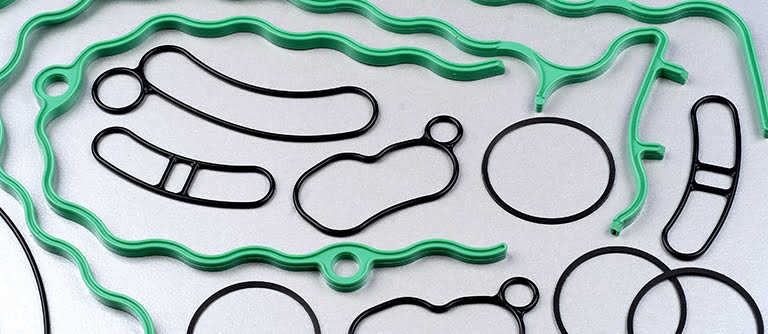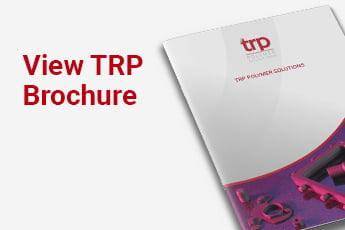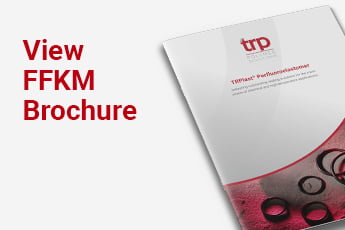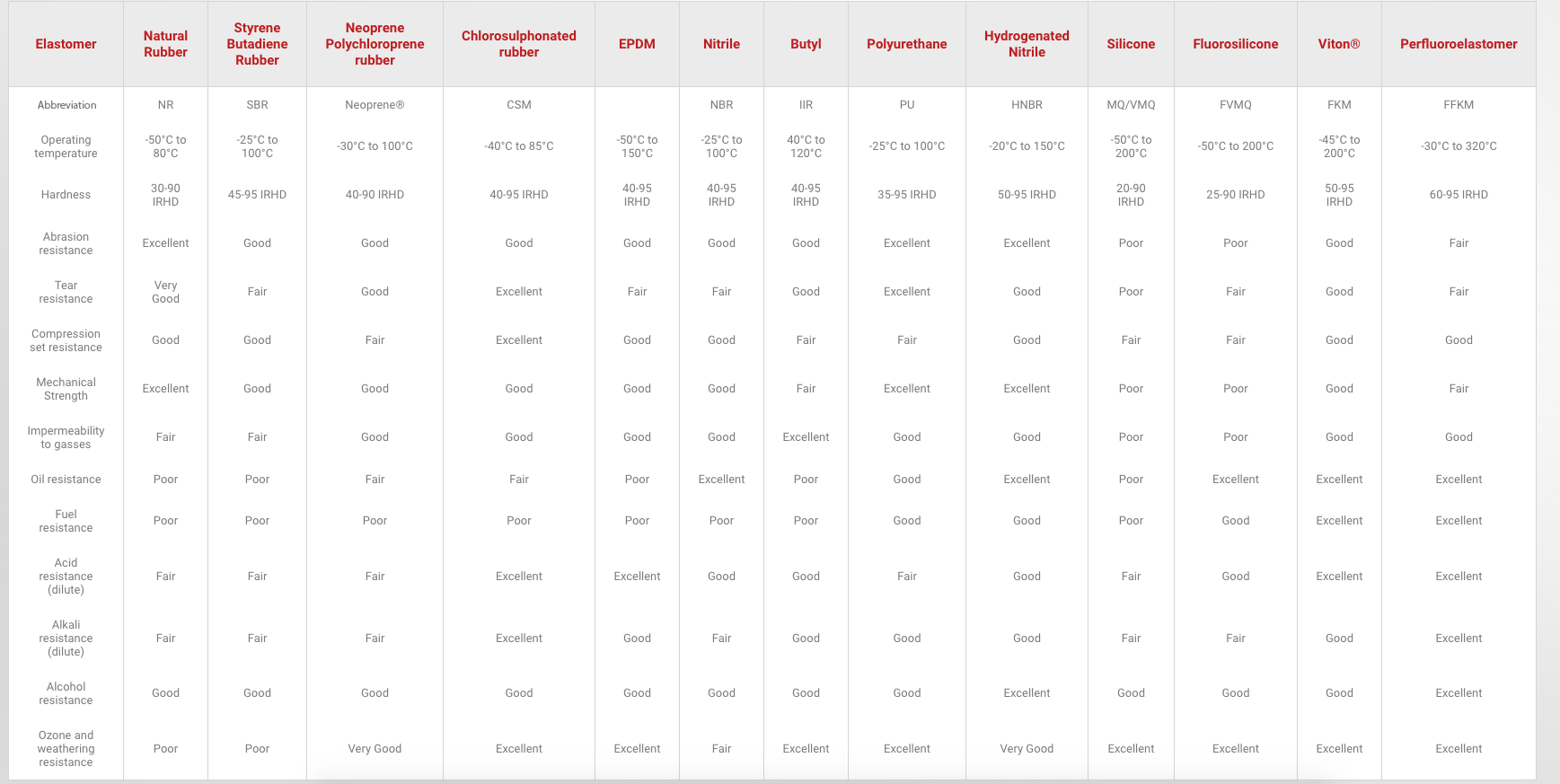FKM Rubber vs PTFE: Which is the ultimate fluorinated material?
Fluoroelastomer (FKM) rubber is a thermoset elastomer while Polytetrafluoroethylene (PTFE) is a thermoplastic. Both are fluorinated materials comprising of carbon atoms surrounded by fluorine atoms, which gives them incredible chemical resistance. In this article, TRP Polymer Solutions pitches both materials against each other in an FKM vs PTFE comparison to see which is the ultimate fluorinated material.
Benefits of FKM rubber and PTFE
| FKM | Score | PTFE |
| Origins: WWII aeroplanes were plagued with leaking nitrile seals of that era, which lacked the cold temperature performance needed for various applications. The chemical inertness of Fluorine-Carbon bonds meant that fluorinated elastomers, or fluoroelastomers, were a natural conclusion. So it came to be that FKM rubber was commercialised in 1948. | 1-0 | Origins: PTFE was discovered accidentally in 1938 by Roy Plunkett, a scientist at DuPont. Plunkett experimented with refrigerants and stored them in cylinders. He was surprised that the gases had polymerised, leaving a white, waxy substance that didn’t react with any chemicals and could withstand extremely high temperatures. DuPont trademarked the first brand of PTFE material – Teflon – in 1945. |
| Verdict: The development of PTFE is a charming quirk of fate that led to the birth of a remarkable material. However, an equally impressive material in FKM rubber was borne out of sheer necessity during the war years. For that reason, FKM fluoroelastomer’s historical contribution means it narrowly edges this round. | ||
| FKM rubber properties: FKM rubber contains strong carbon-fluorine bonds, giving it high chemical, thermal and oxidation resistance. FKM contains varying amounts of carbon-hydrogen bonds (a weak link for heat and chemical resistance) but is still more chemically resistant than most other elastomers. | 1-1 | PTFE properties: PTFE consists of a chain of carbon atoms with two fluorine atoms bonded to each carbon. These fluorine atoms surround the carbon chain, creating a dense molecule with very strong carbon-fluorine bonds and a polymer structure that makes PTFE inert to most chemicals. |
| Verdict: Based purely on their individual chemical makeup, PTFE’s absence of carbon-hydrogen bonds make it a more chemically inert material than FKM (although FKM is still incredibly chemically resistant). For that reason, PTFE just shades FKM in this round. | ||
| Advantages: Wide temperature range (-45°C – 204°C)
Excellent chemical resistance High density and high quality feel Good mechanical properties Can be formulated for explosive decompression, CIP, SIP and FDA |
2-2 | Advantages: Wide temperature resistance (-30°C to +200°C)
Chemically inert Excellent electrical insulation Highly weatherable Non-adhesive and water resistant Lowest coefficient of friction of any solid |
| Verdict: It’s impossible to split them on this round. FKM offers greater temperature resistance but falls short of PTFE’s properties in terms of chemical resistance. While PTFE is slightly less thermally resistant but offers much in the way of non-adhesive properties. It’s a dead heat! | ||
| Disadvantages: Can swell in fluorinated solvents
Can’t be used with molten or gaseous alkali metals Higher cost than other non-fluorinated hydrocarbons Choosing the wrong FKM for an application can lead to rapid failure Low temperature grades can be costly |
3-2 | Disadvantages: Low strength and stiffness
Cannot be melt processed Poor radiation resistance Higher shore hardness makes PTFE less sealable PTFE ‘O’ rings have a higher leak rate than other elastomers Inelasticity makes multiple seal installations impossible |
| Verdict: On the balance of things, FKM rubber comes out victorious in this round because of its superior strength, flexibility and sealing capabilities. Of course, if nothing else will suffice other than a chemically inert seal then PTFE is a great option. However, FKM offers slightly more flexibility…in every sense! | ||
| Applications: Automotive
Chemical processing Oil and gas Heavy duty machinery Aerospace Many others |
4-3 | Applications: Chemical processing equipment
valves chemical transport pump diaphragms |
| Verdict: It’s another dead heat! FKM has a greater range of applicable uses and can be applied to some truly heavy duty applications. However, despite its limitations, for the toughest applications involving extremes of pressure, temperature and caustic chemicals, PTFE material offers the ultimate solution. | ||
| Cost: FKM rubber is a premium product, due to its chemical makeup and subsequent chemical resistance. Cheaper elastomer options could be applicable if chemical and temperature resistance is not a concern. | 5-3 | Cost: PTFE material is also a premium product. Again, if your application involves anything less than the most extreme temperatures, pressures and aggressive chemicals, then a cheaper alternative might be preferable. For optimum sealing properties PTFE is bonded to an elastomer core to provide resistance to compression. |
| Verdict: FKM and PTFE are both premium products, for good reason. Both of these materials offer exceptional properties, which explains the expense of producing them. However, you should bear in mind that for extreme applications both offer exceptional characteristics. You get what you pay for in these situations and often cheaper alternatives will fail sooner, which is ultimately a false economy. | ||
| Result: On the balance of things, FKM’s elastomeric properties have just given it the edge in this hypothetical contest. Ultimately, both of these fluorinated materials offer exceptional chemical and temperature resistance. However, as a plastic, PTFE is more rigid than FKM; making it suitable for only the most extreme sealing applications where high pressure and caustic chemicals are a major concern. FKM’s broader suitability as a sealing material has, well, sealed its victory! | ||
We hope this FKM rubber vs PTFE comparison has given you a better idea of each material’s various characteristics. It must be stressed that the best way to select the most appropriate material for your application is to speak to an expert who can talk you through the various material grades and match you with the ideal solution for your application.
TRP Polymer’s technical experts have many years of experience developing and specifying high performance sealing materials and are only too happy to offer guidance and advice. Speak to one of our experts today on 01432 268899 or email sales@trp.co.uk.






